 Developing Your Natural Talent
Developing Your Natural Talent
To Lead
Read the article and interview about the Natural Passages Program with Herb Stevenson in ALN Magazine.
See the article...
 LISTEN!
LISTEN!
To Herb Stevenson
talk about the
Four Principals of Leadership in these short interviews.
and to Falling Leaves - music and lyrics written and performed by Jeff Endemann, a participant in MoMen 2006. The song was inspired and written during a MoMen weekend.
The complete CD is available
for purchase at: www.jeffendemann.com
"One must still have chaos in oneself to be able to give birth to a dancing star"
—Nietzsche

Trust: A Self-Examination
Herb Stevenson
March 31, 2015
“Trust is a many splendored thing” may seem like an odd way to start this article. Typically, we tend toward a perspective that trust either exists or it does not. We tend to act as if it is a passive process based on our experiences with other people, be they bosses, peers, direct reports, spouses or friends. It becomes an active experience when something drastically changes our perception; i.e. we become fonder or disappointed, often experiencing it as a complete reframe of our self, our perception and the other person.
When I took a deeper examination, I returned to my gestalt and existential roots to get a clearer perspective of what is this nefarious word we call trust. In my search, I began to realize that trusting is something we “individually do; it is something we make, we create, we build, we maintain, we sustain with our promises, our commitments, our emotions and our sense of our own integrity.” (Solomon & Flores) p. 5) In many ways, it is at the core of our own self perception of who we are as a person. Moreover, it is often a passive process that is managed reactively (tied to an emotive past) instead of actively or pro-actively.
As I examined it more deeply, I discovered that the lack of conscious awareness of the importance of actively engaging both the possibility of trust and distrust was more like a self-created trap than a true strategy for being fully present and therefore effective as a person. The trap involves not acknowledging and “owning” that my perception of another person involves the constant “possibility of betrayal.” What I do with that possibility is the crux of developing and creating trust within myself and with another person. If I fully embrace that possibility, I realize that every person is more than any heightened moment of trust or distrust and therefore requires my digging deep into my reactions to such situations; else, I may pre-judge the person (and situation) from my preconceived notions of what is expected (or preferred). My prejudgement is akin to my shadow, the unconscious, unclaimed aspects of myself, that rears up when triggered from unfinished or incomplete but judged experiences from my past. My presence to fully engage with the possibility returns me to my true self when I consciously choose to trust or to distrust by recognizing that the act and therefore this relationship is more than this particular event, be it an act of perceived betrayal or an act of fondness in the form unexpected recognition and/or significant support.
Some Application
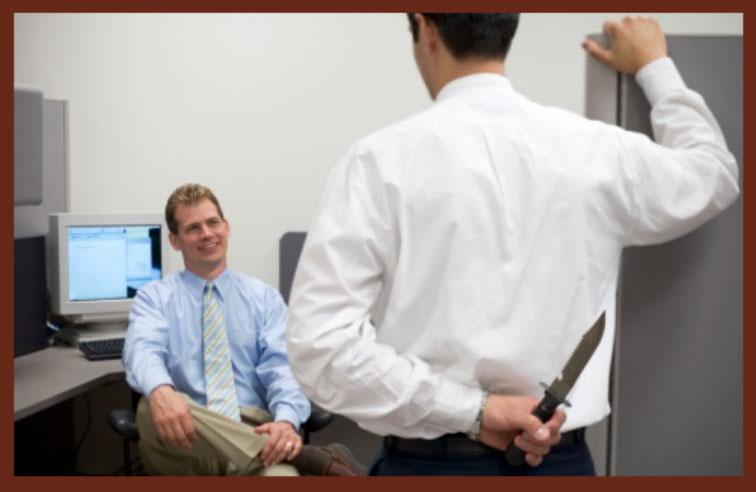 In relationships, there tends to be passive agreement in the form of the unwritten rules of civility. Culturally, there may be variations. Nonetheless, they exist. Solomon and Flores refer to this process as “cordial hypocrisy: the strong tendency of people..., because of loyalty or fear, to pretend that there is trust when there is none, being polite in the name of harmony when cynicism and distrust are active poisons, eating away at the very existence of ...their relationships.” We frequently refer to these as the cultural dynamics impacting the relationship—family, religion, ancestry, etc. For example, a cliche that reflects the cultural dynamics of trust is captured in the phrase knowing the unwritten rules of “what feeds or eats you”. Knowing the difference matters in terms of survival; and, in such situations, there is a pre-judged process of how to make meaning of what to trust or to distrust. Moreover, the shared perception is that there is no choice to individually decide. This leads to shadow behavior.
In relationships, there tends to be passive agreement in the form of the unwritten rules of civility. Culturally, there may be variations. Nonetheless, they exist. Solomon and Flores refer to this process as “cordial hypocrisy: the strong tendency of people..., because of loyalty or fear, to pretend that there is trust when there is none, being polite in the name of harmony when cynicism and distrust are active poisons, eating away at the very existence of ...their relationships.” We frequently refer to these as the cultural dynamics impacting the relationship—family, religion, ancestry, etc. For example, a cliche that reflects the cultural dynamics of trust is captured in the phrase knowing the unwritten rules of “what feeds or eats you”. Knowing the difference matters in terms of survival; and, in such situations, there is a pre-judged process of how to make meaning of what to trust or to distrust. Moreover, the shared perception is that there is no choice to individually decide. This leads to shadow behavior.
Similarly, all relationships have cultural dynamics that lie embedded within how each person makes meaning of any situation. Heated arguments within many marriages often develop over time as differences surface and we realize that this person is not who we thought that were. Small acts that seem harmless to one become large acts of betrayal to the other.
Authentic trust goes beyond our experience and perceptions of benevolence, integrity, competence, and predictability. It is always about the relationship between individuals and how we choose to hold the person (positively or negatively) and to make meaning of events. In short, we constantly and most often unconsciously make decisions to trust. We make promises and tacit commitments. We see them through. We come to have expectations of others, and we respond to the fulfillment and frustration of those expectations. Trust is not something we ‘have’ or a medium or an atmosphere within which we operate. Trust is something we do, something we make. Our mutual choices of trust determine nothing less than the kinds of beings we are and the kinds of lives we will live together. It begins with trusting our self.
An Example
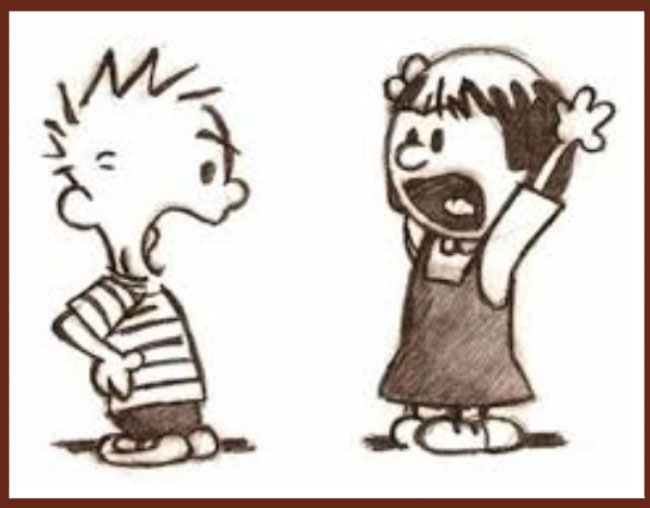 An individual struggled between being a hard charging, directive wielding and punishing individual and a sincere and supportive parent. Under duress, the less stellar behaviors were often released whereas the more supportive individual appeared when the family performance was deemed according to his expectations. Cordial hypocrisy seeped throughout the home.
An individual struggled between being a hard charging, directive wielding and punishing individual and a sincere and supportive parent. Under duress, the less stellar behaviors were often released whereas the more supportive individual appeared when the family performance was deemed according to his expectations. Cordial hypocrisy seeped throughout the home.
After a careful discussion of the behavioral elements of trust and distrust, I realized that he had no understanding that trust is relational and that he had an active responsibility to chose to trust or not and moreover to be responsible for his contribution to whether or not the relationships within the family were defined by trust or distrust. He believed that he had eminent trust from the fact that he was the parent....akin to the ‘great father syndrome’ where because I am the Father, all my sins must be forgiven...a backhanded "honor thy parents cultural perception regardless of the behavior." Regardless of his untested for reasonableness expectations, he believed he had no responsibility to make or create trust in the family.
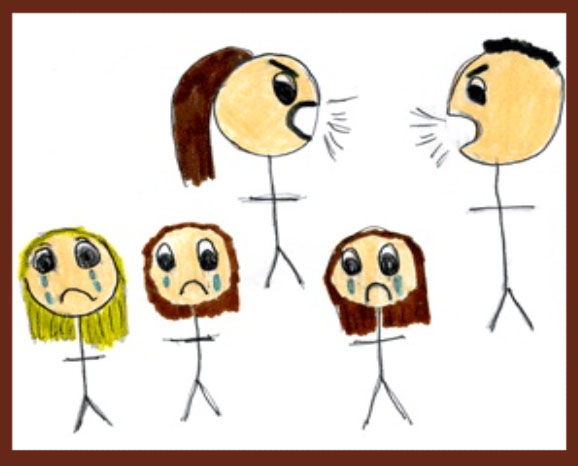 Not all things end well. It became clear that the individual simply viewed himself having no responsibility (or culpability) for his behavior. Family morale declined to the point that it was clear that something had to change. His wife filed for divorce and took the children, who made it clear that they wanted to be with their mother.
Not all things end well. It became clear that the individual simply viewed himself having no responsibility (or culpability) for his behavior. Family morale declined to the point that it was clear that something had to change. His wife filed for divorce and took the children, who made it clear that they wanted to be with their mother.
Reflections
In retrospect, I realized that I had insufficient understanding of how to create personal awareness for this individual surrounding how he was impacting trust within the family and moreover how he was not trusting the family to be a family in its own evolving form. I was not clear within myself how to explain what is trust and that we create, make, and be it when consciously being present to the person, situation, or crisis.
What is a consciously aware Trust1
Assuming a fully present, consciously aware stance, I began to explore what is trust. I came to understand that authentic trust—
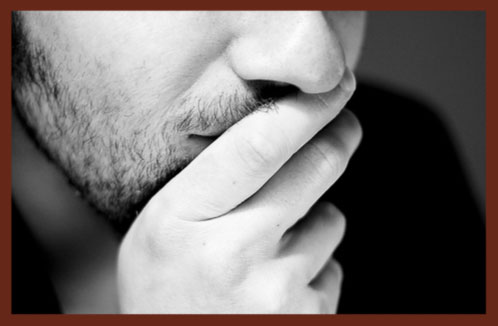 will support us to avoid an unnecessary narrowing of focus and initiation of distrust by assuming that trust is predominantly a risk/reward or right/wrong dynamic. Rather, authentic trust is self-determined and tends to open greater awareness of more options than simply to move toward distrust.
will support us to avoid an unnecessary narrowing of focus and initiation of distrust by assuming that trust is predominantly a risk/reward or right/wrong dynamic. Rather, authentic trust is self-determined and tends to open greater awareness of more options than simply to move toward distrust.- is the result of continuous individual attentiveness and activity even though it often recedes into the background of awareness until thrust forward when it feels or is challenged or violated. The lack of constant awareness that we build relationships of which trust is an evolving component results in the constant shock and surprise when one of our assumptions is burst like a bubble touching a blade of grass. Trust is our meaning-making process of the untested assumptions we make about relationships.
- is not the glue that holds a relationship together. Rather trust is dynamic and is actually part of the vitality of relationships because it involves personal responsibility, commitment, and the constant change within an evolving relationship. (Unearned loyalty is often confused with trust and is the case with the above individual that felt he was bequeathed trust from the nature of his fatherhood.)
- is a social practice, not a set of beliefs. It is a conscious awareness and initiative on “how to” trust, instead of “knowing that” someone or something is trusting or trustworthy.
- evolves. How we think about trust makes it (trust) possible, difficult, or impossible. Not thinking about and managing our meaning-making processes leads to being shocked by an unshared assumption being revealed.
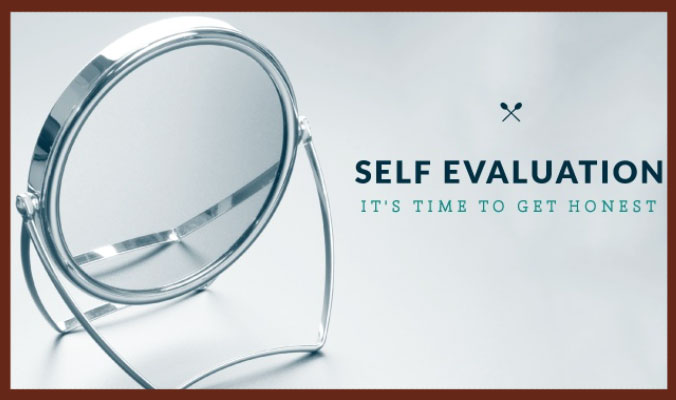 thinking and talking about trust will not only influence our beliefs, but change our behavior with each other and within the organization. By being fully present and aware of our internal experience and the dynamics in the relationship, our internal reactions tend to indicate where and how to make meaning of the situation and more importantly where we might have disagreement.
thinking and talking about trust will not only influence our beliefs, but change our behavior with each other and within the organization. By being fully present and aware of our internal experience and the dynamics in the relationship, our internal reactions tend to indicate where and how to make meaning of the situation and more importantly where we might have disagreement.- involves breaches of trust that do not demarcate the end of trust and the relationship. Often, it is the sense of distrust that might only be a mistake or misunderstanding that warrants conscious consideration. Furthermore, it might simply be a cultural difference in how each perceives a situation, thereby revealing unexamined assumptions from our heritage, religions, family, etc. is both earned and must be given for it to survive in a relationship. Therefore, trust involves a consciously reciprocal relationship that does not revolve exclusively around prediction, risk, and reliance. Rather, it is developed by staying fully present in the worst of perceived “betrayals” or “disagreements” in order to reveal the angst in the situation and to understand if the angst has anything to do with the present moment.
- involves sincerity, authenticity, integrity, virtue, and honor. It is not a ‘neutral’ character trait, not just a cultural pattern in relationship and not a matter of ‘good judgement’ about others. It is a matter of conscientious integrity within the relationship depicted as the courage to stay fully present and engaged.
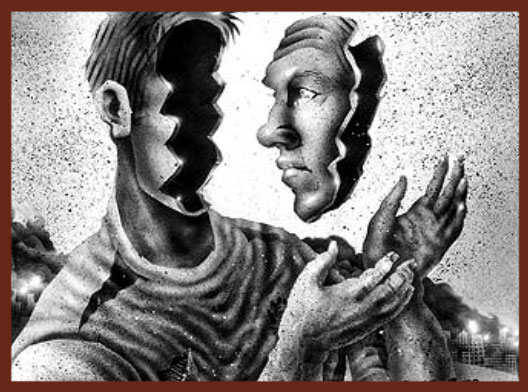 is lost in the lack of self-trust. Distrust often is a projection of our distrust of our self. This can surface as cynicism, selfishness, and naivete in which one expects to get more than one is willing to give. Resentment, distrust, and inauthenticity are the result. If blaming others is the normal reaction, self-trust is missing.
is lost in the lack of self-trust. Distrust often is a projection of our distrust of our self. This can surface as cynicism, selfishness, and naivete in which one expects to get more than one is willing to give. Resentment, distrust, and inauthenticity are the result. If blaming others is the normal reaction, self-trust is missing.- can never be taken for granted, but must constantly be cultivated through sincere commitments, and sincere truthfulness. It literally requires presence, our’s and other’s.
Return to the Situation
As I further reflected on the individual, I realized that his focus of command and control drove all of his behavior. He could not conceive that increasing trust does not increase control. Nor could he grasp that by easing the reins of control, it improves relationships. Rather, he clung to his ability to hold others responsible by quickly blaming them for either failing or misunderstanding his changing expectations. Trust requires real authority and autonomy to fully be who one is in the relationship. He could not confer either authority or autonomy to anyone else.
References
Robert C. Solomon & Fernando Flores, Building Trust: In business, politics, relationships, & life. Oxford University Press, 2001
Footnotes
1 Adapted from Solomon and Flores


